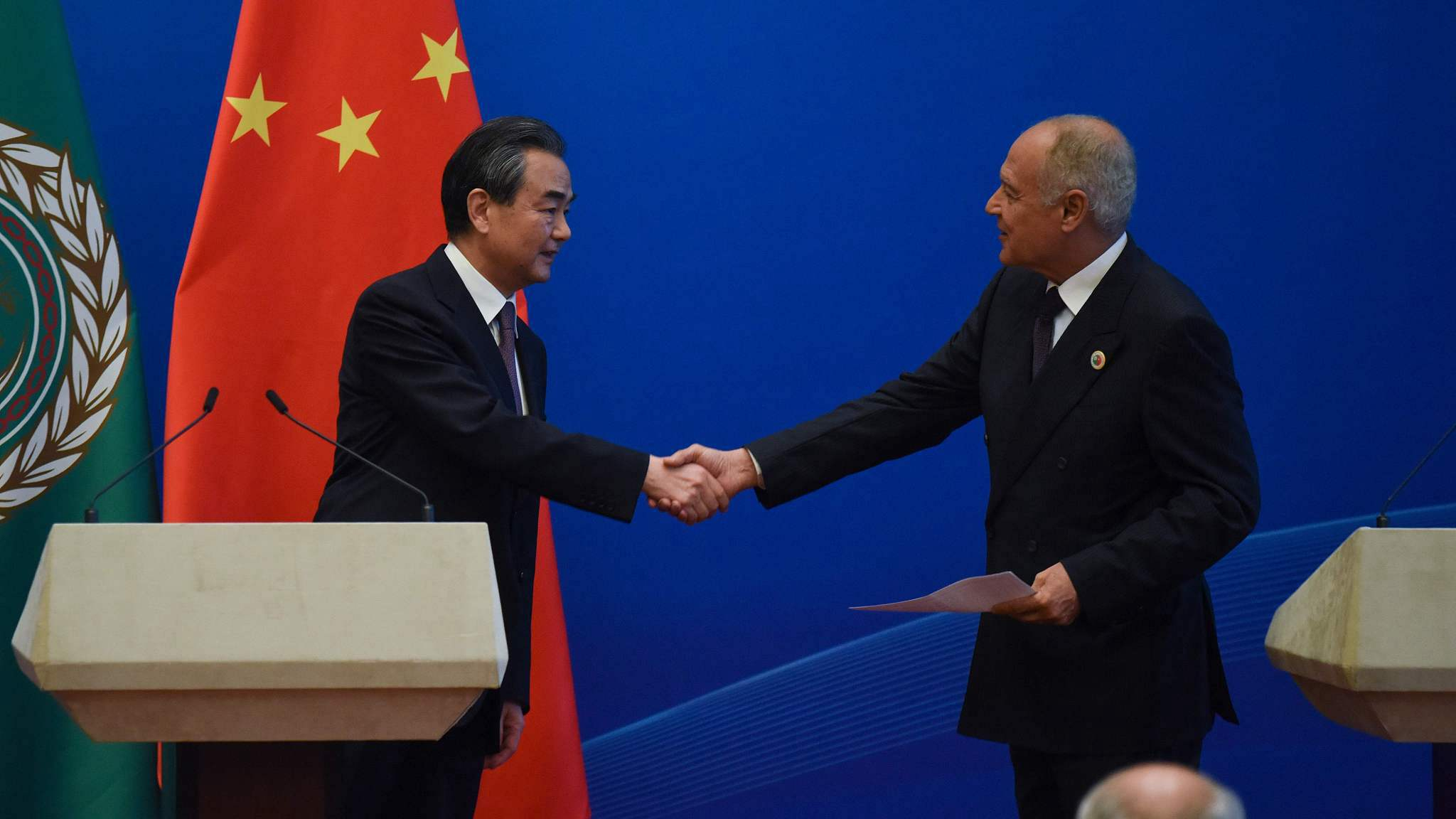
Opinions
08:45, 11-Jul-2018
Opinion: New direction for Sino-Arab relations
Updated
08:09, 14-Jul-2018
Wang Jin

Editor's note: Wang Jin is a research fellow at the Charhar Institute and Syria Research Center at Northwest University in China. The article reflects the author's opinion, and not necessarily the views of CGTN.
Fourteen years after the establishment of the China-Arab States Cooperation Forum, the forum itself has been transformed from a relatively small assembly to an important multilateral platform. And during that time, there have been many achievements in cooperation between China and Arab states.
Politically, the China-Arab States Cooperation Forum has become an example of a new kind of mechanism for cooperation between different states and different regions. Economically, China has become the second biggest trade partner of Arab states, while the Arab world has become an important supporter of China’s Belt and Road Initiative. Culturally, the people-to-people exchanges between China and Arab states have blossomed during the decade since the China-Arab States Cooperation Forum was established, especially since the Belt and Road Initiative was advocated years ago.
In a world full of uncertainties and challenges, no single state can handle all the difficulties and overcome all the challenges, while different states, different regions, different cultures should sit down to find solutions to different challenges by seeking common ground while reserving differences to construct the “community of shared destiny.” The China-Arab States Cooperation Forum has become an important platform to facilitate dialogue, enhance mutual trust and consolidate cooperation.

A view of a commercial section of Abu Dhabi /VCG Photo
A view of a commercial section of Abu Dhabi /VCG Photo
The trade volume between China and Arab states has reached more than 190 billion US dollars. Meanwhile, the Taida Suez Industry Zone in Egypt, the Duqm Industry Zone in Oman, the Dragon City in Abu Dubai, are all the important pivot points for the Belt and Road Initiative in the Middle East.
More and more Chinese businessmen, students and tourists travel and live in the Arab world, and the number of Arabs who come to China to live, study and do business is also increasing. The China-Arab States Cooperation Forum provides both China and the Arab world with a window to understand each other, while also offers the whole world an example on building a better world.
The China-Arab States Cooperation Forum sets an example for the whole world about how to diminish differences, especially given the increasingly close economic connections among different states today.
The most negative influence of global trade tension comes not from the economic aspect but from the ideological aspect. With America starting to raise tariffs to “safeguard its economy” without listening to or considering other states’ concerns, the world might be dragged into an economic battlefield in which no state would be safe.
The correct way, or the reasonable way, should be solving problems and melting mistrust through dialogue and talks, and this is what the China-Arab States Cooperation Forum is doing.
There are challenges, with the most imminent coming from the internal splits among Arab states, especially the disagreements or even hostilities over different sensitive regional issues, such as the civil wars in Syria and Yemen.

People ride motorbikes in Umm al-Mayazen, in the countryside of Deraa, Syria, July 10, 2018. /VCG Photo
People ride motorbikes in Umm al-Mayazen, in the countryside of Deraa, Syria, July 10, 2018. /VCG Photo
Meanwhile, the intervention or harassment from third parties might also challenge Sino-Arab relations. For example, some false reports about Chinese Muslim status in China, some fake news about China’s Belt and Road Initiative from some Western media, might negatively influence Sino-Arab relations. What we need to do is not only to facilitate mutual trust between political leaders, but also further facilitate people-to-people exchanges and trust to co-construct a brilliant future for Sino-Arab relations.
There is still great potential for Sino-Arab cooperation. For example, in the energy sector, the Arab states should open up their upstream oil and gas operations to China so it can have access to rich oil and gas, and China should open up its downstream oil and gas operations to Arab investment to allow the Arab enterprises to increase their share in the Chinese market.
Meanwhile, the two sides should seek closer cooperation in infrastructure construction, because faster economic development requires good infrastructure support, which many Arab states seem to lack. In fact, China could help the Arab states improve their infrastructure and clear the bottlenecks obstructing their economic development.
Financial cooperation will become the next important field for Sino-Arab cooperation. Finance facilitates the development of the real economy in the Arab world. And deeper Sino-Arab cooperation in the real economy will inevitably create a demand for even deeper financial cooperation.
In the future, the major task for China and Arab states is how to connect the Belt and Road Initiative with different economic and social development plans in Arab states. During the past years, we have seen different economic and social development plans designed by different Arab states, for example, the Vision 2030 in Saudi Arabia, the 2025 Vision in Jordan, and the 2035 Vision in Kuwait.
All these economic and social development plans could connect with China’s Belt and Road Initiative. China and Arab states are able to achieve shared economic growth and social development through discussion and collaboration to make a better world.

SITEMAP
Copyright © 2018 CGTN. Beijing ICP prepared NO.16065310-3
Copyright © 2018 CGTN. Beijing ICP prepared NO.16065310-3